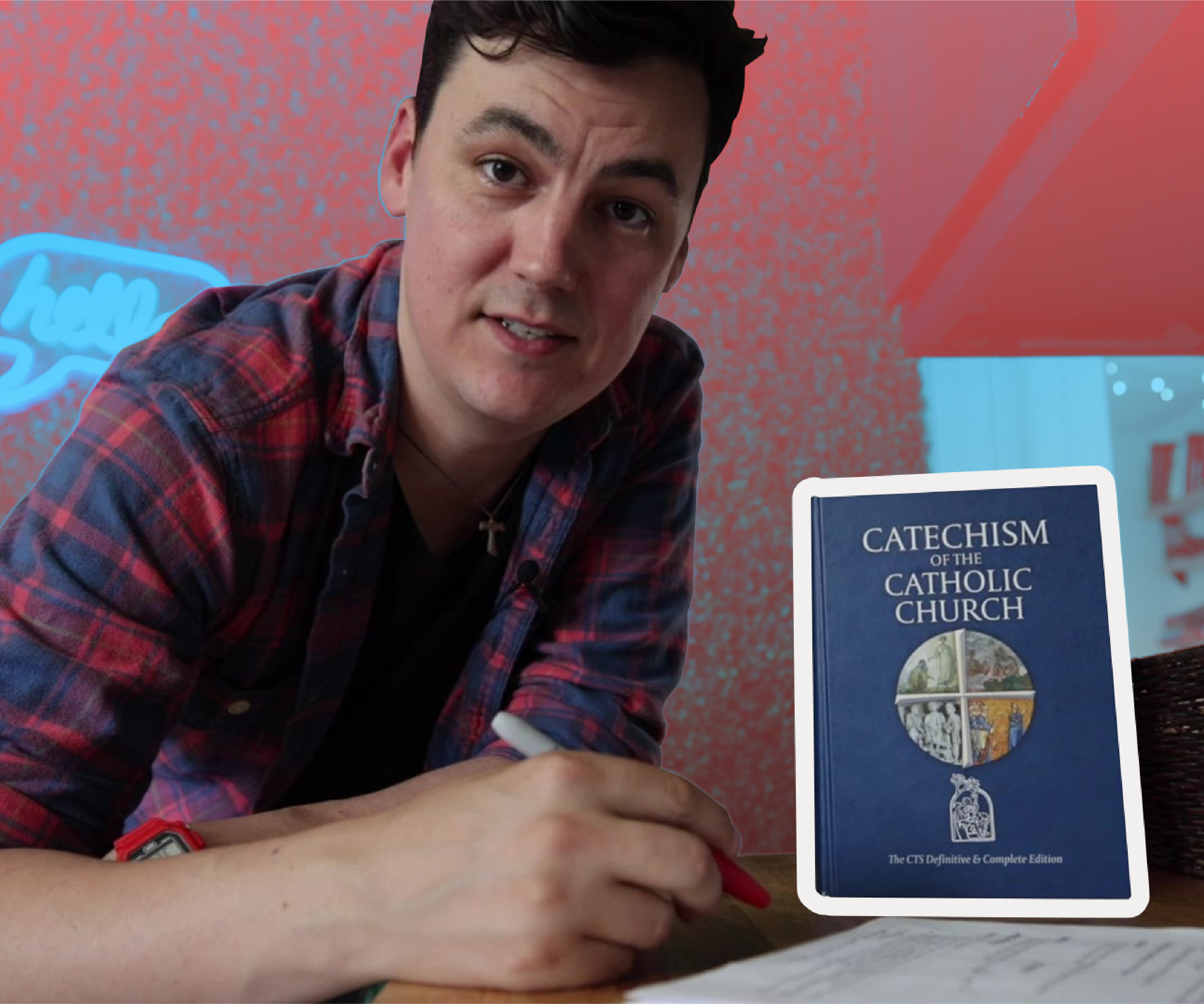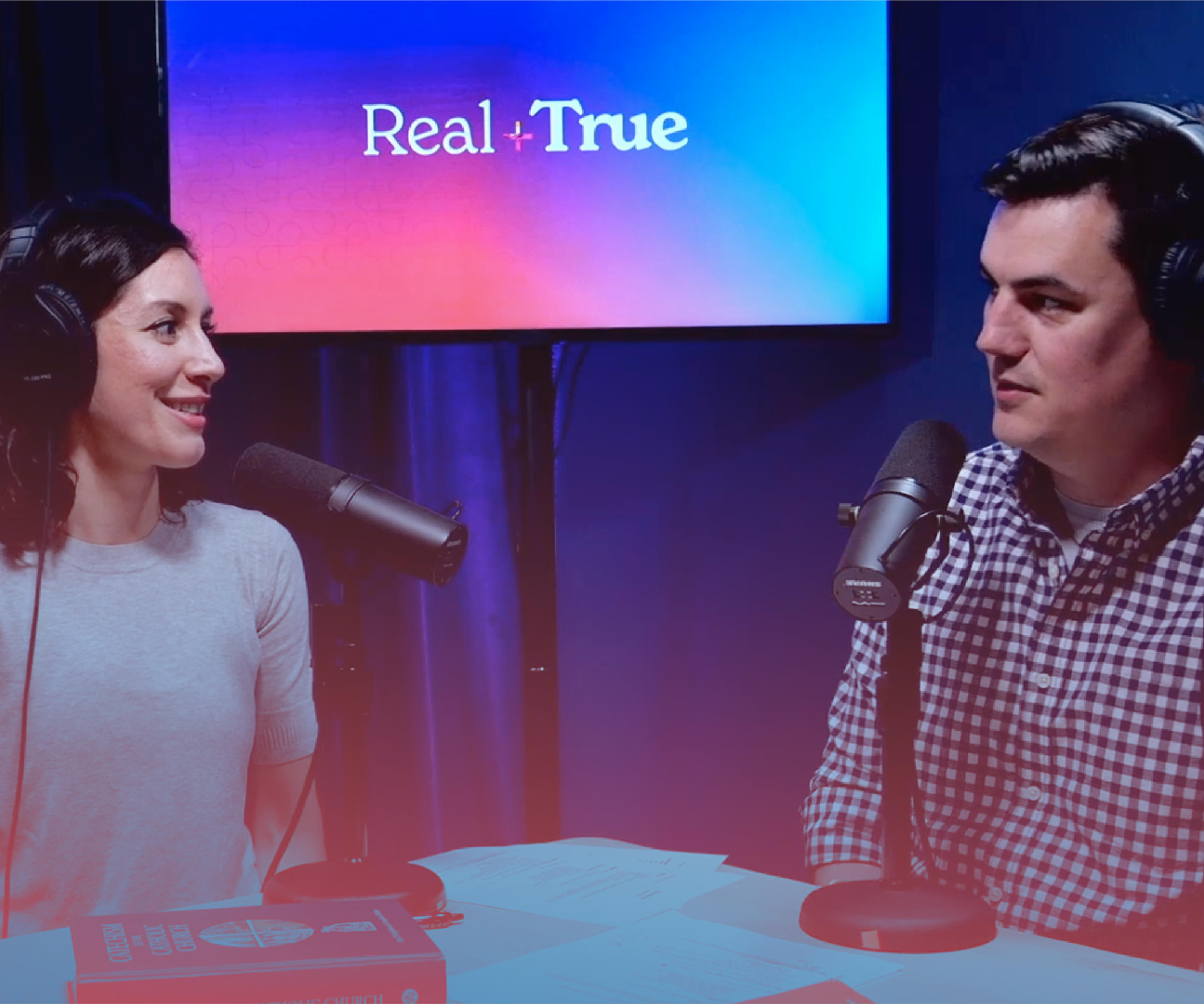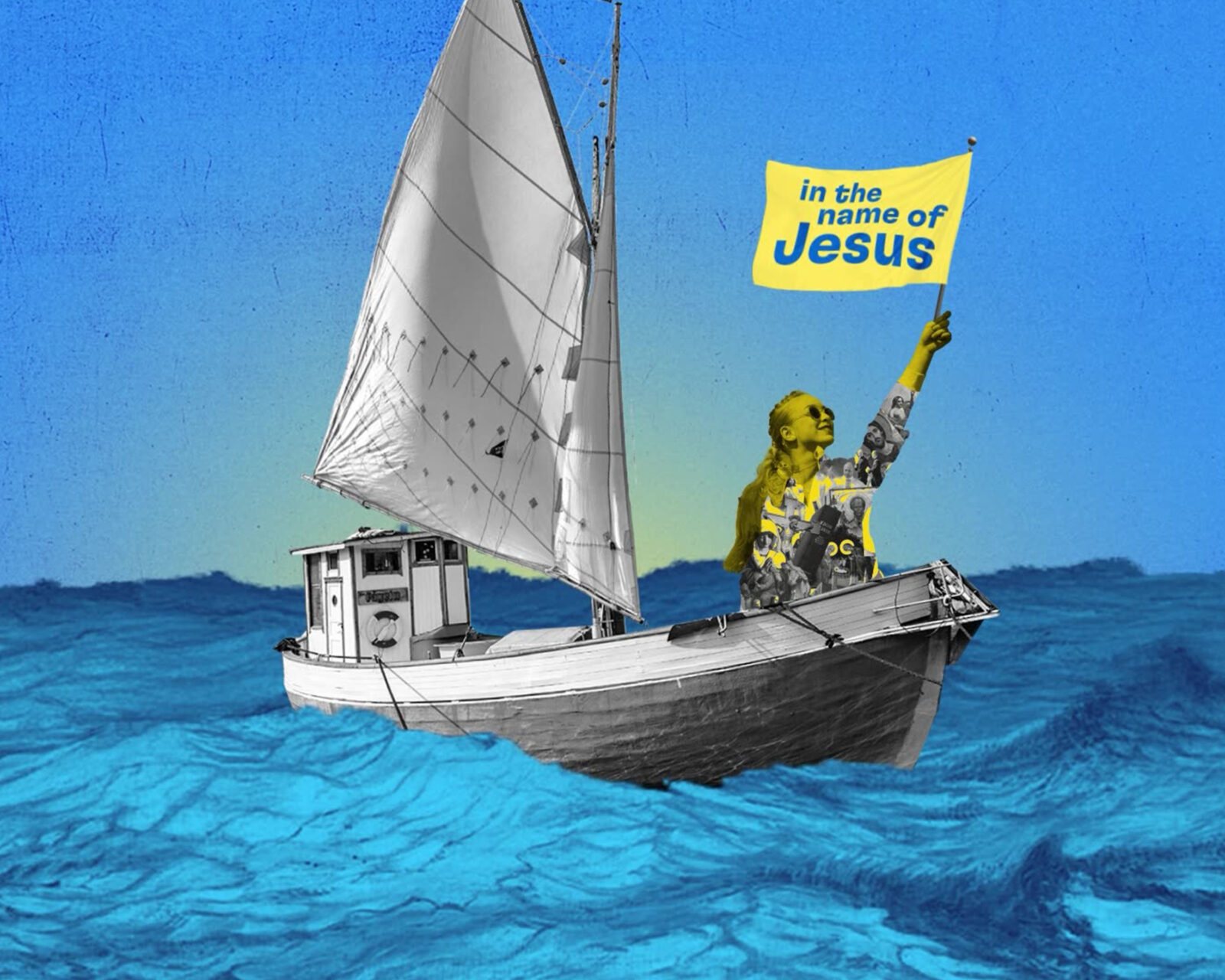Explanation
Is there a plan for my life?

Maps are arguably one of the most important human inventions ever, and also probably one of the oldest. Why are humans so fascinated with knowing where we are and where we're going?
Explanation

Connection

Podcast

Edmund: On February 18th, 2021, the NASA Rover Perseverance landed on Mars. By April it had sent back to Earth over 16,000 images of the red planet. And the photos are definitely cool, but kind of boring. I mean, it’s just dirt and rocks as far as you can see.
As you look at these photos from Mars, it’s easy to imagine getting lost. Here’s an entire planet without any obvious distinguishing features, just miles and miles of dirt. And in one way, it’s sort of beautiful. Mars is one unified planet. It’s not divided up by city, state or country lines. It’s a world without maps. This made me wonder: what would Earth be like without maps?
(Newspaper with headline, “We have accurately mapped entire globe!”)
The first place we could look for an idea of what the world would be like without maps is back before written language. Before we started drawing stuff on paper. Maps are arguably one of the most important human inventions ever. And also probably one of the oldest, (Ptolemy’s “Geography” 150 AD) but why, and when did we start making maps?
Dr Matthew: Hi, I’m Dr. Matt Rossano and I’m a professor of psychology at Southeastern Louisiana University. (Dr. Matt Rossano, professor of Psychology, Southeastern Louisiana University)
Edmund: I asked Dr. Matthew if he could help me understand if our ancient ancestors would have used maps even before written language.
Dr Matthew: Well, if you go back into our evolutionary past, one of the big issues would have been keeping your understanding of your location and space. If you get lost, you imagine somebody running around naked on the African Savanna, getting lost, he or she is dead. And so, yeah, it would be very important from a survival standpoint that you’re able to keep track of your location and your territory. (Safe water, shelter, snakes & lions)
Edmund: Maps in their most basic form help answer the very practical question: where am I? (You are here) And it turns out we’ve most likely used maps for a very long time. Some of the oldest surviving map-like objects or drawings predate the invention of written language. (Lascaux Cave Star Map, c. 17000BC; Abauntz Lamizulo Rock Map, c. 14000BC; Mezhirich Mammoth Camp, c. 14000BC; Invention of Written language, c. 2900BC) Possibly the oldest surviving map is this ancient mammoth tusk dated to 25,000 BC and found in the Czech Republic. (Right here, Pavlov)
There’s plenty of evidence that maps are one of the oldest human inventions. (Oldest Human Inventions: The Wheel, Fire, Maps, Language, The boat, Shields, Sliced Bread, The Show, Tooth Picks, Domesticated Animals, Lipstick) However, it’s worth noting though that most of the earliest known maps were of the stars, not the Earth. There are cave paintings in Spain that contain a dot map of the Corona Borealis constellation. (Corona Borealis Constellation) These drawings date back to 12,000 BC (Red paintings in El Castillo, c. 12,000 BC) and are the earliest map making efforts we can be sure of. We’ve come a long way in terms of map making and maps still seem to fascinate us. (World Map, c. 600 BC; World Map, c. 43 AD; World Map, c. 1154 AD; World Map, 1490 AD; World Map, 1507 AD; World Map, 2007 AD)
Dr Matthew: As a little kid, I always liked maps. You know, I would just sit around sometimes looking at maps and just imagining, what must it be like to live in that place (map of City of Rome) or what must it be like to live over in that place? And how far is this place from that place? So, maps always fascinated me.
Edmund: Dr. Matthew explained that even without drawing a map, our brains are still wired to make mental maps. When we make a mental map, we are concerned about how things are connected or how places are located in relationship to each other. We think in more or less straight lines, and we attach specific locations with meaning and significance. (“important horse statue”, “best haircut in town”) Think about giving someone directions in your hometown.
Woman: So you just go down the street, you know past the store, take a left at the corner bakery where we went for brunch on your birthday and then take the next two rights and you’ll find yourself there.
Edmund: When you look at a map you might take for granted that the best maps are as accurate as possible. After all maps, give you information about where you are and where you’re going. If you don’t know where you are, a map won’t help. (Location lost…) A good map needs to be relevant and accessible to the person using it. This Tokyo Metro map, for example, arguably is too accurate, it has too much information. And this map, well, good luck finding that treasure. A good map isn’t just informational. A good map is useful. Information for information’s sake isn’t helpful. A good map helps us go on adventures. We have an unending desire to make maps because we want to know the world around us. (South America) We make maps of our hometown (“Ubersicht Wanderkarte” map) and we’re making maps of Mars. And what if there’s something deeper about our fascination with maps?
Dr Matthew: So I think on one level, it helps to relieve us from a very ancient and deeply emotional concern, which is the concern of getting lost. On another level, I think what a map does is that it tells you your place in the world. It gives you a sense of place. Here’s. Here is I now look at this and I see my world and I see my place in the world. And there there’s something, I don’t know. There’s just that that’s information that we seem to want to know. (That is information we seem to want to know…) We, we seem to want to know how our world is constructed and what our position in that world is. Yeah. There is something spiritual about that. If you think about it.
Edmund: Walker Percy, the American novelist, wondered quote, “Why is it possible to learn more in 10 minutes about the Crab Nebula, which is 6,000 light-years away, than you presently know about yourself, even though you have been stuck with yourself all your life?”
I can’t stop thinking about the fact that most of the earliest known maps were of the stars (Suzhou Star Chart, 1193 AD), not the Earth. We make maps because we want to know the universe, but we also have a deep desire to understand our place in the universe. And that seems to be the hardest question. Where do I fit on the map and how should I respond to my place in the world?
What if maps aren’t enough? What if they are a sign of the deepest desire of the human heart? (What if maps are a sign of the deepest desire of the human heart?) Maybe we make maps of our hometown and maps of Mars because deep down we sense we’re made to know and respond to the infinite. Deep down, we sense we’re made for something greater than ourselves that we’re made for a great adventure.
Our ancestors first looked up and made maps of the heavens. What if the heavens have made a map for us?
U.42 — CCC 2807-2815

Ambassadors have shaped history. What do their actions reflect about the authority and responsibility of the leaders they serve?
WatchU.41 — CCC 2759-2806

Family traditions connect us to our roots, uniting us through cherished practices and linking us to a greater story.
WatchU.40 — CCC 2697-2758

In our personal relationships, professional life, or spiritual journey, small but consistent actions can create big, lasting change.
WatchU.39 — CCC 2650-2696

Is any art truly original, or is everything built on the foundation of what came before?
WatchBy submitting this form you consent to receive emails about Real+True and other projects of OSV.